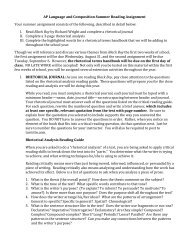Sacrament of the Anointing of the Sick
Sacrament of the Anointing of the Sick
Sacrament of the Anointing of the Sick
- No tags were found...
Create successful ePaper yourself
Turn your PDF publications into a flip-book with our unique Google optimized e-Paper software.
<strong>Sacrament</strong> <strong>of</strong> <strong>the</strong> <strong>Anointing</strong><br />
<strong>of</strong> <strong>the</strong> <strong>Sick</strong><br />
Scriptural Origins, Meaning and Effects, & Rite
Sr. Briege McKenna on <strong>the</strong><br />
<strong>Sacrament</strong>s and Healing
Sr. McKenna Question<br />
What was Sr. McKenna's main point during <strong>the</strong><br />
interview with Fr. Mitch Pacwa<br />
Where <strong>the</strong>re any surprises in what she talked<br />
about
Part I: What is suffering all<br />
about
Why Me<br />
● The Old Testament<br />
<strong>of</strong>fers a very<br />
important<br />
explanation for why<br />
people suffer--what<br />
is it
Oh, yeah, Original Sin<br />
● Original Sin results in<br />
pain and suffering for<br />
all humanity: Genesis<br />
3:16-19<br />
● "The desires <strong>of</strong> <strong>the</strong><br />
human heart are evil<br />
from youth" (Gen 8:<br />
22b) = since sin<br />
continues, punishment<br />
continues perpetually
Original Sin Continued<br />
● "For God formed us to be imperishable; <strong>the</strong><br />
image <strong>of</strong> his own nature he made us. But by<br />
<strong>the</strong> envy <strong>of</strong> <strong>the</strong> devil, death entered <strong>the</strong><br />
world, and <strong>the</strong>y who are allied with him<br />
experience it" (Wisdom 2:23-24)<br />
● Bright side Mortality humbles all and<br />
makes all humans equally vulnerable,<br />
including <strong>the</strong> wicked powerful people <strong>of</strong> <strong>the</strong><br />
world (Isaiah 14:4b-21)
Law <strong>of</strong> Retribution: God's<br />
Justice<br />
● Ancient Hebrew <strong>the</strong>ology understood any and all<br />
suffering (including <strong>the</strong> inability to have children)<br />
as a punishment for sins.<br />
● Death, illness, "bad luck", famine, drought, natural<br />
disasters, slavery, exile, barrenness, birth defects,<br />
etc. You name it, sin caused it.<br />
● If sinned caused it, <strong>the</strong> ancients believed you<br />
deserved your troubles somehow. God caused <strong>the</strong><br />
trouble to strike you, but you earned it. Your<br />
disobedience resembles that <strong>of</strong> Satan, and so you<br />
become his ally, not God's.
Law <strong>of</strong> Retribution, Examples<br />
● The Great Flood (Genesis 7)<br />
● Destruction <strong>of</strong> Sodom and Gomorrah<br />
(Genesis 19)<br />
● Miriam's Leprosy (Numbers 12)<br />
● Death <strong>of</strong> David's first child with Bathsheba<br />
(2 Sam 12:15-25)--note <strong>the</strong> conception <strong>of</strong><br />
Solomon = happily-ever-after<br />
● The Prophets interpret <strong>the</strong> Exile as a<br />
punishment for not following <strong>the</strong> Torah<br />
faithfully (eg. Jeremiah 25)
Theodicy: Why do Good People<br />
Suffer<br />
● But if suffering was for sinfulness, why do <strong>the</strong> evil<br />
thrive and <strong>the</strong> good languish (Psalm 10)<br />
● In <strong>the</strong>ological terms, this problem is talked about<br />
as "<strong>the</strong>odicy".<br />
● Theodicy is addressed directly in <strong>the</strong> books <strong>of</strong><br />
Job and Tobit--Can anyone recount one <strong>of</strong> <strong>the</strong>se<br />
stories How do <strong>the</strong>y end<br />
● What about Jesus' story Does it make sense to<br />
claim that good people should be spared suffering<br />
if God Incarnate had to suffer
Fur<strong>the</strong>r Theories about<br />
Suffering<br />
● Suffering tests and teaches <strong>the</strong> righteous. "But <strong>the</strong><br />
Lord chastises those who are close to him in order<br />
to admonish <strong>the</strong>m" (Judith 8:27).<br />
● Suffering is also <strong>the</strong> consequence <strong>of</strong> <strong>the</strong> free will<br />
exercised by o<strong>the</strong>rs who are evil. (Cain murdering<br />
Abel) = You cannot have free will without <strong>the</strong><br />
possibility <strong>of</strong> people abusing it---but God will<br />
punish <strong>the</strong> evil and reward <strong>the</strong> good, if not in this<br />
life, in <strong>the</strong> one to come.<br />
● Suffering for God is a holy act (think <strong>of</strong> <strong>the</strong><br />
suffering prophets or <strong>the</strong> Maccabean Martyrs)
Suffering has Meaning
Jesus & Suffering<br />
"Love your enemies...For he<br />
(God <strong>the</strong> Fa<strong>the</strong>r) makes his<br />
sun rise on <strong>the</strong> bad and <strong>the</strong><br />
good, and causes rain to fall<br />
on <strong>the</strong> just and <strong>the</strong> unjust..."<br />
(Matt 5:44-45). Suffering<br />
does not always =<br />
punishment, since even<br />
Jesus admits <strong>the</strong> good<br />
suffer and <strong>the</strong> evil thrive<br />
sometimes.
Jesus and Suffering<br />
The Man Born Blind (John<br />
9)<br />
● The disciples ask why <strong>the</strong><br />
man was born blind.<br />
Jesus denies that it was a<br />
punishment for sin.<br />
● This man's illness had a<br />
higher purpose. In this<br />
case, providing an<br />
opportunity for a display<br />
<strong>of</strong> God's love and power.
Poor Man Lazarus<br />
In <strong>the</strong> parable about <strong>the</strong><br />
Rich Man and Lazarus,<br />
<strong>the</strong> sufferings endured<br />
patiently by Lazarus <strong>the</strong><br />
beggar lead to his going<br />
to heaven. The rich man<br />
who never suffered goes<br />
to hell, because he did<br />
not help Lazarus. (Luke<br />
16:19-31)
The Cross & Imitating Christ<br />
"And whoever does not<br />
take up his or her cross<br />
and follow me is not<br />
worthy <strong>of</strong> me" (Mat<strong>the</strong>w<br />
10:38)<br />
"No one has greater love<br />
than this, to lay down<br />
one's life for one's<br />
friends" (John 15:13)
Mater Dolorosa<br />
● St. Simeon says to <strong>the</strong><br />
Bl. Virgin: "And you<br />
yourself a sword will<br />
pierce" (Luke 2:35).<br />
● Mary endured acute<br />
suffering related to<br />
her son's ministry and<br />
Passion.<br />
● Sorrow for o<strong>the</strong>rs<br />
shows our unity with<br />
and our love for <strong>the</strong>m.
Suffering Apostles: Preaching<br />
Mission and Martyrdom<br />
"Therefore, that I might not<br />
become too elated, a thorn<br />
in <strong>the</strong> flesh was given to me,<br />
an angel <strong>of</strong> Satan, to beat<br />
me...Three times I begged<br />
<strong>the</strong> Lord about this, that it<br />
might leave me, but he said<br />
to me, 'My grace is sufficient<br />
for you, for power is made<br />
perfect in weakness'"<br />
(1 Cor 12:7b-9b)
Part II: A <strong>Sacrament</strong> for Healing
<strong>Anointing</strong> <strong>of</strong> <strong>the</strong> <strong>Sick</strong><br />
Although we may suffer as a consequence <strong>of</strong><br />
God's justice in relation to our sinfulness, God<br />
has instituted a sacrament to share his healing<br />
and his mercy: <strong>the</strong> <strong>Sacrament</strong> <strong>of</strong> <strong>the</strong> <strong>Anointing</strong><br />
<strong>of</strong> <strong>the</strong> <strong>Sick</strong>.<br />
The sacrament is rooted in Jesus' own ministry<br />
<strong>of</strong> healing, and that <strong>of</strong> <strong>the</strong> Apostles<br />
commissioned by him to continue his healing<br />
work.
Fr. Drwyer discusses<br />
<strong>Anointing</strong> <strong>of</strong> <strong>the</strong> <strong>Sick</strong>
Apostolic Tradition:<br />
Letter <strong>of</strong> St. James<br />
"Is anyone among you<br />
suffering He should pray...<br />
Is anyone among you sick<br />
He should summon <strong>the</strong><br />
presbyters <strong>of</strong> <strong>the</strong> church,<br />
and <strong>the</strong>y should pray over<br />
him and anoint him with oil<br />
in <strong>the</strong> name <strong>of</strong> <strong>the</strong> Lord"<br />
(James 4:13a,14)
















